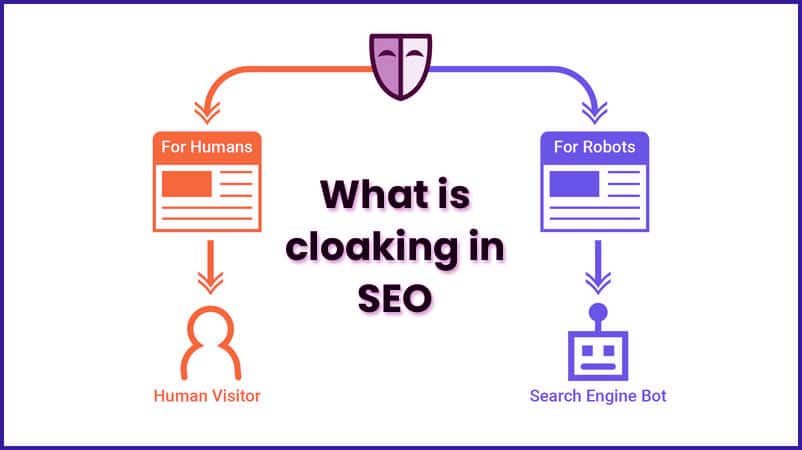In the ever-evolving landscape of digital marketing, Search Engine Optimization (SEO) stands as a cornerstone for online visibility and success. Among the myriad strategies employed by SEO practitioners, one tactic often elicits polarized opinions: cloaking. Cloaking is a technique where content presented to search engine crawlers differs from what is presented to users. It’s a practice that raises questions about its ethicality, effectiveness, and long-term sustainability. In this blog, we delve into the concept of cloaking in SEO, exploring whether it’s a genuine shortcut to success or a risky gambit that could backfire.
Understanding Cloaking
Cloaking operates on a simple premise: to present content tailored specifically to search engine algorithms while displaying different content to users. The aim is to deceive search engines into ranking a website higher for certain keywords or phrases, ultimately driving more organic traffic. This can be achieved through various methods, such as IP-based cloaking, user-agent cloaking, or JavaScript-based techniques.
Proponents of cloaking argue that it’s a strategic maneuver to overcome algorithmic hurdles and gain a competitive edge in the cutthroat world of online marketing. They contend that since search engine algorithms primarily rely on content analysis, cloaking allows websites to optimize content specifically for search engines without sacrificing user experience.
The Ethical Conundrum
However, the ethical implications of cloaking cannot be ignored. Critics argue that cloaking violates the fundamental principles of transparency and integrity in SEO. By presenting different content to search engines and users, cloakers manipulate search engine rankings, potentially misleading users and eroding trust in the integrity of search results.
Furthermore, search engines like Google strictly prohibit cloaking and consider it a violation of their Webmaster Guidelines. Websites caught cloaking risk severe penalties, including removal from search engine indexes, effectively rendering them invisible to potential visitors.
Short-Term Gain vs. Long-Term Sustainability
While cloaking may yield short-term gains in terms of increased visibility and traffic, its long-term sustainability is questionable. Search engines continuously refine their algorithms to combat deceptive practices like cloaking. What may appear as a shortcut to success today could lead to devastating consequences tomorrow.
Moreover, cloaking creates a precarious situation where websites become dependent on maintaining the facade of deceptive practices to sustain their visibility. This not only undermines the credibility of the website but also exposes it to the constant threat of being penalized or banned by search engines.
Alternatives to Cloaking
Instead of resorting to cloaking, SEO practitioners are encouraged to adopt legitimate strategies that prioritize user experience and compliance with search engine guidelines. Content quality, relevance, and engagement remain paramount factors in determining search engine rankings.
White-hat SEO techniques such as keyword optimization, quality link building, and creating valuable content are proven methods for improving organic search visibility without resorting to deceptive practices. These strategies not only enhance a website’s ranking but also foster trust and credibility among users and search engines alike.
The Risks of Cloaking
The allure of a shortcut to success through cloaking may seem tempting, but the risks far outweigh the potential rewards. Websites engaging in cloaking gamble with their online reputation, risking penalties that could have far-reaching consequences.
Moreover, cloaking undermines the essence of SEO, which is to deliver relevant and meaningful content to users. By prioritizing manipulation over authenticity, cloakers jeopardize the integrity of the digital ecosystem and contribute to a climate of mistrust and skepticism.
Conclusion
In the realm of SEO, the allure of shortcuts to success often masks the inherent risks and consequences associated with deceptive practices like cloaking. While cloaking may offer temporary gains in visibility and traffic, its long-term viability is questionable at best and perilous at worst.
Instead of seeking shortcuts, SEO practitioners should focus on sustainable strategies that prioritize transparency, integrity, and user experience. By adhering to ethical practices and staying abreast of evolving search engine algorithms, websites can achieve lasting success without resorting to risky gambits like cloaking.
In conclusion, while cloaking may promise a shortcut to success, its ethical implications and long-term sustainability make it a risky proposition that is best avoided in favor of legitimate and sustainable SEO strategies.


